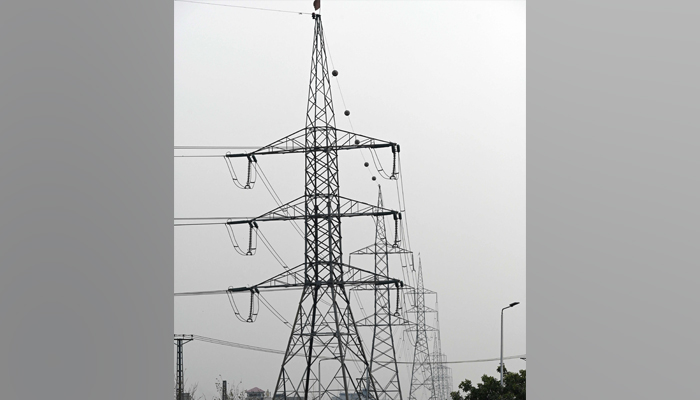Time for privatization?
The National Electric Power Regulatory Authority’s (Nepra) recent report on the billing practices of Pakistan’s distribution companies (DISCOs) for July and August 2023 offers a comprehensive and critical examination of the sector.
This in-depth analysis, focusing on the operational challenges and inefficiencies within various DISCOs underscores an urgent need for systemic reforms in Pakistan’s power sector.
The report’s findings are a cause for significant concern. For instance, the Multan Electric Power Company (Mepco) charged over 5.7 million consumers for billing cycles exceeding the standard 30 days in July 2023. This practice led to inflated bills and unfairly pushed consumers into higher tariff slabs. Similarly, in August 2023, the Gujranwala Electric Power Company (Gepco) impacted around 1.2 million consumers with extended billing cycles.
Further, the report highlights substantial issues with invalid meter readings and snaps. Major contributors to this problem included Mepco, Lahore Electric Supply Company (Lesco), Quetta Electric Supply Company (Qesco), and Sukkur Electric Power Company (Sepco). The prevalence of defective meters, especially in Mepco, further complicates the issue, leading to overbilling and financial strain on consumers.
A particularly alarming aspect revealed in the report is the age-wise analysis of defective meters across DISCOs, impacting billing accuracy. Mepco, for example, had a staggering 272,370 defective meters by August 2023. The delay in replacing these meters resulted in consumers being inaccurately charged on an average basis for extended periods.
Moreover, the report uncovers discrepancies in sample bills checked across various DISCOs. A high percentage of bills were found to have discrepancies, such as differences in meter readings, incorrect slab charges, and issues with meter snapshots. This reflects not only poor operational practices but also a lack of transparency in the billing process.
In contrast to these challenges, K-Electric (KE), operating under a privatized model, demonstrates a different scenario. While the report does not primarily focus on KE, its relative efficiency and fewer issues compared to the public DISCOs subtly indicate the potential benefits of privatization in the power sector. KE’s example suggests that privatization can lead to improved service delivery, enhanced accountability, and better resource management.
The Nepra report’s findings serve as a stark reminder of the need for reform in Pakistan’s power sector and the need for privatization in DISCOs. The inefficiencies and irregularities in the billing practices of DISCOs like Mepco and Gepco directly impact the financial wellbeing of millions of consumers.
These findings highlight the urgent need for reforms and improvement in the management and operational practices of these companies.
The writer is an energy economist and works as a research officer at the Institute of Policy Studies (IPS).
-
 Eric Dane's Girlfriend Janell Shirtcliff Pays Him Emotional Tribute After ALS Death
Eric Dane's Girlfriend Janell Shirtcliff Pays Him Emotional Tribute After ALS Death -
 King Charles Faces ‘stuff Of The Nightmares’ Over Jarring Issue
King Charles Faces ‘stuff Of The Nightmares’ Over Jarring Issue -
 Sarah Ferguson Has ‘no Remorse’ Over Jeffrey Epstein Friendship
Sarah Ferguson Has ‘no Remorse’ Over Jeffrey Epstein Friendship -
 A$AP Rocky Throws Rihanna Surprise Birthday Dinner On Turning 38
A$AP Rocky Throws Rihanna Surprise Birthday Dinner On Turning 38 -
 Andrew Jokes In Hold As BAFTA Welcomes Prince William
Andrew Jokes In Hold As BAFTA Welcomes Prince William -
 Sam Levinson Donates $27K To Eric Dane Family Fund After Actor’s Death
Sam Levinson Donates $27K To Eric Dane Family Fund After Actor’s Death -
 Savannah Guthrie Mother Case: Police Block Activist Mom Group Efforts To Search For Missing Nancy Over Permission Row
Savannah Guthrie Mother Case: Police Block Activist Mom Group Efforts To Search For Missing Nancy Over Permission Row -
 Dove Cameron Calls '56 Days' Casting 'Hollywood Fever Dream'
Dove Cameron Calls '56 Days' Casting 'Hollywood Fever Dream' -
 Prince William, Kate Middleton ‘carrying Weight’ Of Reputation In Epstein Scandal
Prince William, Kate Middleton ‘carrying Weight’ Of Reputation In Epstein Scandal -
 Timothée Chalamet Compares 'Dune: Part Three' With Iconic Films 'Interstellar', 'The Dark Knight' & 'Apocalypse Now'
Timothée Chalamet Compares 'Dune: Part Three' With Iconic Films 'Interstellar', 'The Dark Knight' & 'Apocalypse Now' -
 Little Mix Star Leigh-Anne Pinnock Talks About Protecting Her Children From Social Media
Little Mix Star Leigh-Anne Pinnock Talks About Protecting Her Children From Social Media -
 Ghislaine Maxwell Is ‘fall Guy’ For Jeffrey Epstein, Claims Brother
Ghislaine Maxwell Is ‘fall Guy’ For Jeffrey Epstein, Claims Brother -
 Timothee Chalamet Rejects Fame Linked To Kardashian Reality TV World While Dating Kylie Jenner
Timothee Chalamet Rejects Fame Linked To Kardashian Reality TV World While Dating Kylie Jenner -
 Sarah Chalke Recalls Backlash To 'Roseanne' Casting
Sarah Chalke Recalls Backlash To 'Roseanne' Casting -
 Pamela Anderson, David Hasselhoff's Return To Reimagined Version Of 'Baywatch' Confirmed By Star
Pamela Anderson, David Hasselhoff's Return To Reimagined Version Of 'Baywatch' Confirmed By Star -
 Willie Colón, Salsa Legend, Dies At 75
Willie Colón, Salsa Legend, Dies At 75




